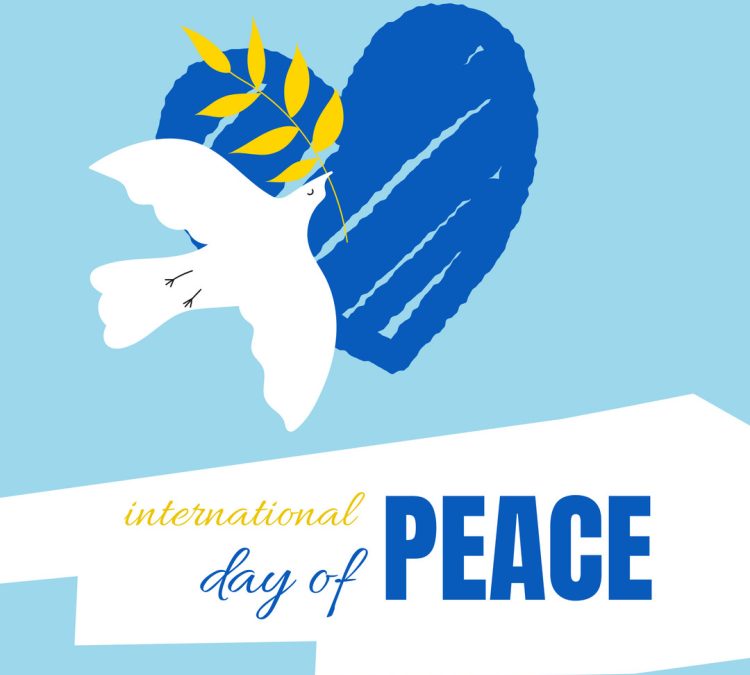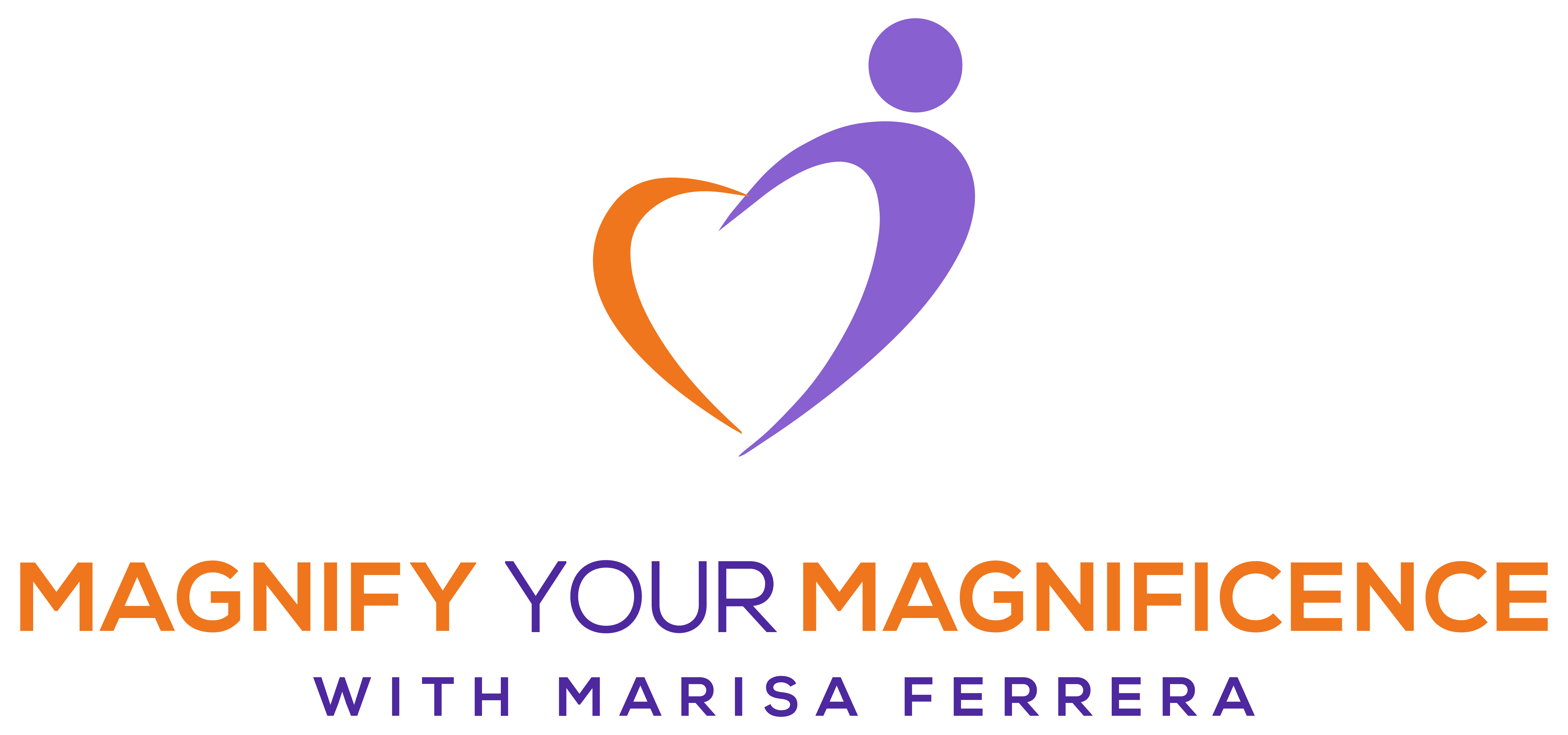
by Marisa Ferrera | Feb 13, 2025 | Relationships, Special Days
Valentine’s Day tends to focus on romantic love, but at its core, it’s about all forms of love—including the deep connections we share with family. What if we carried the spirit of Valentine’s Day into every single day? By nurturing our relationships, practicing open communication, and creating healthy, loving boundaries, we can create a family environment filled with warmth and understanding long after February 14th has passed.
Tips to Help you Strengthen your Family Connections
1. Show Love in the Little Things
Love isn’t just about saying “I love you”—it’s about everyday gestures that show you care. Acknowledge your family’s efforts, express gratitude, and offer words of encouragement. Small things, like a warm hug, a thoughtful note, or simply putting your phone down and listening, can make a huge difference in strengthening your bond. Love is also about consistency—showing up for people when they need you, celebrating their wins, and being a source of support in tough times. Sometimes, it’s as simple as checking in with a quick text or making their favorite meal just because.
2. Make Time for Each Other
Life gets busy, and it’s easy to take family relationships for granted. Make a conscious effort to carve out quality time—whether it’s a weekly dinner, a shared activity, or just a walk together. What matters most isn’t the activity itself, but being fully present in the moment. If you live far from family, schedule regular phone or video calls to stay connected. It’s not about grand gestures; rather, it’s the little things that build meaningful relationships over time. Even a five-minute check-in or a handwritten letter can make someone feel cherished.
3. Practice Compassion and Forgiveness
No family is perfect, and disagreements are inevitable. Instead of holding onto resentment, see conflict as an opportunity to grow and heal. When tensions arise, listen with an open heart, express your feelings calmly, and focus on understanding rather than winning. Put yourself in the other person’s shoes—everyone has their struggles, and sometimes a little patience can go a long way. A genuine apology can mend wounds, and choosing to let go of minor grievances can create a more peaceful family dynamic. Compassion means choosing love over ego and prioritizing harmony over being right.
4. Create Healthy Boundaries
Strong relationships thrive on mutual respect and clear boundaries. Boundaries aren’t about shutting people out—they’re about ensuring love and respect flow freely without resentment. Communicate your needs honestly and kindly, and respect the limits of others as well. For example, if you need space after a long day, express that with kindness rather than frustration. If a family member tends to overstep, set gentle yet firm boundaries that honor your emotional well-being. Boundaries create clarity, reduce misunderstandings, and foster deeper connections based on mutual respect.
5. Celebrate the Everyday Moments
You don’t need a special occasion to celebrate the people you love. Acknowledge milestones, both big and small, and take time to appreciate each other. A kind word, an unexpected note, or a shared laugh can make family members feel seen and valued. Make it a habit to notice the good in your family members and verbalize it—tell them when they’ve done something well, thank them for their kindness, and remind them of their strengths. Gratitude fosters closeness, and when family members feel appreciated, they’re more likely to show love in return.
6. Lead with Love
Creating a loving family atmosphere starts with you. When you choose patience, kindness, and empathy, you set the tone for those around you. Your energy influences the way your family interacts, encouraging warmth and understanding in every interaction. Lead by example—if you want more love in your family, be the first to give it. Offer encouragement, be an active listener, and express your love freely. The way you show up in your relationships will inspire others to do the same.
7. Incorporate Acts of Service
One of the most profound ways to show love is through acts of service. Doing something thoughtful for a family member—whether it’s helping with chores, running an errand, or simply making them a cup of tea—demonstrates care in a tangible way. It’s often the unspoken actions that speak the loudest. Pay attention to what your loved ones need and find small ways to ease their burdens. Love isn’t just in words; it’s in the everyday actions that make life a little easier for those around us.
8. Keep Communication Open and Honest
Honest and open communication is the foundation of any strong relationship. Don’t be afraid to express your feelings, and encourage your family members to do the same. Create a safe space where everyone feels heard and respected. If there’s tension, address it with kindness instead of avoidance. Clear, heartfelt communication prevents misunderstandings and deepens trust, allowing love to flourish naturally.
9. Create Meaningful Traditions
Traditions bring families together and create lasting memories. Whether it’s a Sunday breakfast, an annual family trip, or a game night, traditions give family members something to look forward to and strengthen their bond. You don’t need anything elaborate—simple rituals, like writing letters to each other on special occasions or watching a favorite movie together, can become cherished family traditions that deepen connection over time.
10. Extend Love Beyond Your Immediate Family
Love isn’t limited to immediate family—extend it to relatives, close friends, and even neighbours. Small acts of kindness, like checking in on an elderly family member or supporting a friend in need, create ripples of love that enrich all your relationships. The more love you give, the more you create an environment where love thrives naturally.
This Valentine’s Day, let’s go beyond flowers and chocolates. Let’s commit to making love a daily practice in all our relationships, creating strong and lasting connections that bring joy, kindness, and appreciation—every single day of the year. Love is not a once-a-year event; it’s a way of living that enriches both you and those around you.
If you’d like personalized support in navigating family dynamics, creating healthy boundaries, and/or improving communication, I’d love to help. Schedule a complimentary call with me, and let’s create a plan to bring more love and peace into your family relationships.
Schedule Your Complimentary Call Here

by Marisa Ferrera | Jun 13, 2024 | Relationships, Special Days
Transforming Conflict into Connection: A Father’s Day Guide
Father’s Day is a time to celebrate the unique bond between fathers and their children. However, for many, past conflicts and unresolved issues can complicate this relationship. Instead of letting these conflicts create distance, you can use them as opportunities to build a deeper, more meaningful connection with your father. Here’s a step-by-step guide to turning conflicts into deeper connections this Father’s Day.
Step 1: Reflect on the Conflict
Before addressing any conflict, it’s important to take some time to reflect on it. Ask yourself:
- What was the conflict about?
- How did you feel during the conflict?
- How do you feel now when you think about the past unresolved conflict?
- What needs were not met for you during this conflict?
- What do you believe was your father’s perspective?
- How do you guess your father felt during the conflict?
- How do you guess your father feels now about the past unresolved conflict?
- What needs, would you guess, weren’t met for your father during the conflict?
Understanding your own feelings and unmet needs and guessing the feelings and unmet needs of your father will prepare you for a more constructive conversation.
Step 2: Acknowledge Your Feelings
Once you have reflected on the conflict, acknowledge your feelings. It’s okay to feel hurt, angry, or disappointed. Recognizing and honouring your emotions is a crucial step towards healing. Remember that these feelings are valid and an essential part of your experience.
Step 3: Choose the Right Time and Place
Timing is key when it comes to discussing sensitive issues. Choose a time when both you and your father are likely to be calm and free from distractions. A quiet, comfortable setting can help create a conducive environment for an open and honest conversation.
Step 4: Start with Empathy
Approach the conversation with empathy and understanding. Begin by expressing your appreciation for your father and acknowledging his positive qualities. This sets a positive tone and shows that you value the relationship.
For example, you could start by saying, “Dad, I really appreciate everything you’ve done for me. I know you care about our relationship as much as I do.” What’s important is that you share authentic feelings about something positive to create a heart-to-heart connection.
Step 5: Use “I” Statements
When discussing the conflict, use “I” statements to express your feelings without sounding accusatory. This helps in avoiding a defensive reaction and keeps the focus on your perspective.
For example, instead of saying, “You never listen to me,” try saying, “I felt angry when I expressed my thoughts to you and didn’t feel heard or understood.”
Step 6: Listen Actively
Active listening is crucial in any meaningful conversation. Allow your father to share his perspective without interrupting. Show that you are listening by nodding, maintaining eye contact, and using affirming words like “I understand” or “I see” or “tell me more about that.”
Reflect on what you hear to ensure understanding. For example, “It sounds like you felt upset when I said _____. Is that right?”
Step 7: Seek Common Ground
Find common ground by acknowledging any valid points your father makes. This demonstrates that you value his perspective and are willing to work towards a peaceful resolution.
For example, “I understand why you felt that way, and I agree that we need to communicate better.”
Step 8: Apologize and Forgive
If appropriate, offer a genuine apology for your part in the conflict. This can pave the way for mutual forgiveness and healing.
For example, “I’m sorry for not considering your feelings. I hope we can move past this and build a stronger relationship.”
Also, be open to forgiving your father for any hurt he may have caused. Forgiveness is a powerful tool for letting go of resentment and moving forward.
Step 9: Create a Plan for Moving Forward
Work together to create a plan for preventing similar conflicts in the future. Discuss how you can improve communication and set boundaries that respect both your needs.
For example, “Let’s agree to talk things out calmly instead of raising our voices when we disagree.”
Step 10: Celebrate the Progress
Finally, celebrate the progress you’ve made in transforming conflict into connection. Acknowledge the effort both of you have put into improving your relationship. Use Father’s Day as an opportunity to reinforce your commitment to a healthier, more meaningful relationship.
For example, plan a special activity or share a heartfelt note expressing your gratitude for the renewed connection.
Conclusion
Turning conflict into connection is not always easy, but it is a deeply rewarding process that can strengthen your relationship with your father.
By approaching conflicts with empathy, active listening, and a genuine desire to understand each other, you can transform challenges into opportunities for growth and deeper connection. This Father’s Day, take the first step towards healing and celebrate the bond you share with your dad.
Here’s a free gift that can further support you in resolving conflicts peacefully.

If you find yourself stuck resolving past issues and conflicts with your father, I invite you to schedule a complimentary call with me. We can take a closer look at what might be in your way and decide together whether or not I’m the best person to help you.

by Marisa Ferrera | Jan 1, 2024 | Relationships, Special Days
The dawning of a new year often brings with it a collective energy for change and growth. It’s a time when resolutions are made and aspirations for a brighter, more fulfilling future take root. In this spirit, I invite you to join me in a resolution that extends beyond personal goals—a resolution to cultivate healthier and more harmonious adult family relationships.
The Ripple Effect of Connection
Beyond the realm of personal growth, let’s take a moment to recognize the profound impact our connections have on the world around us. Our relationships, particularly within the family unit, hold the power to shape the energy of our homes and, in turn, contribute to a world filled with love, peace, and positive vibrations.
The Heart of the Resolution: Healthy Boundaries
At the core of this resolution lies a commitment to establishing and respecting healthy boundaries within our families. This practice is not merely an expression of self-love but also a potent means to elevate the frequency and vibration of the earth. By creating clear and respectful boundaries, we open up a space for authentic connections, understanding, and personal growth.
In the intricate dance of family dynamics, boundaries act as the guideposts that help navigate the ebb and flow of relationships. They serve as the foundation for creating an environment where love and harmony can flourish.
Conscious Prioritization: Communication, Empathy, and Forgiveness
As we step into the new year, let’s consciously prioritize open communication, empathy, and forgiveness within our families. These seemingly simple yet incredibly powerful acts not only strengthen the bonds that tie us together but also send waves of positivity into the world. Imagine the collective impact if each of us dedicates ourselves to fostering love and compassion within our family units!
The Extended Reach of Positive Energy
It’s crucial to remember that the energy we radiate within the walls of our homes and within our family relationships extends far beyond. It contributes to the collective energy of the world and plays a role in shaping a more peaceful global environment. As we embark on this new year, let’s be mindful of our thoughts, words, and actions, understanding their potential to elevate the energy around us.
May the coming year be filled with moments of joy, understanding, and growth within our families. Together, let’s create a ripple effect of love that extends far beyond our homes, touching the hearts of others and inspiring positive change around the globe.
Wishing you a New Year filled with love, laughter, and transformative connections!

by Marisa Ferrera | Sep 21, 2023 | Relationships
Introduction:
On this International Day of Peace, as we celebrate global unity and tranquility, let’s shift our focus inward, to our own challenging adult family relationships. These intricate dynamics can be sources of both joy and turmoil. However, it’s never too late to embark on a journey towards understanding, empathy, and unity within our families. In this blog post, I’ll explore seven actionable steps to foster peace and harmony within your adult family relationships.
1. Communication: The Bedrock of Healthy Relationships
– Open, honest, and empathetic communication is the cornerstone of any thriving relationship. Taking the time to truly listen, understand, and express your thoughts calmly can pave the way for meaningful connections.
2. Forgiveness: A Path to Healing and Reconciliation
– Letting go of grudges and past conflicts is a powerful act of love. Forgiveness is not a sign of weakness but a courageous step towards healing and reconciliation, allowing space for new beginnings.
3. Empathy: Stepping into Each Other’s Shoes
– Practicing empathy involves putting yourself in the shoes of your family members. Acknowledge that everyone has their unique struggles and challenges, and they are doing the best they can with their self-awareness and the tools at their disposal.
4. Boundaries: Preserving Personal Space and Autonomy
– Establishing clear boundaries that respect each individual’s needs and desires can prevent misunderstandings and conflicts. Healthy boundaries promote mutual respect and understanding.
5. Quality Time: Strengthening Emotional Bonds
– Invest time in shared activities that promote bonding. These shared experiences can help reinforce the emotional connection among family members.
6. Seek Mediation: Facilitating Heart-Led Discussions
– In cases where tensions run high and communication becomes challenging, consider involving a neutral third party, such as a therapist, counselor, or coach. Their guidance can help mediate and facilitate discussions, ensuring that emotions are expressed constructively.
7. Self-Care: Nurturing Your Well-Being
– Remember that your well-being is crucial. Taking care of yourself physically, mentally, and emotionally equips you to handle family challenges effectively. Self-care is not selfish; it’s an essential part of maintaining healthy relationships.
Conclusion:
Creating peace and harmony within your adult family relationships is an ongoing journey, one that requires patience, understanding, and commitment. Small steps can lead to profound changes in the dynamics of your family. As we celebrate International Day of Peace, let us take these actionable steps to heart, striving to transform our family connections into sources of love, support, and harmony.
If you’re interested in delving deeper into this transformative journey and discovering how to magnify your family relationships into sources of love, harmony, and deeper connections, I invite you to schedule a complimentary Relationship Renewal Discovery Session. Together, let’s create a world of peace, one family at a time. 🕊️

by Marisa Ferrera | Jun 14, 2023 | Relationships
When we think of Father’s Day, it’s natural for some of us to envision a day filled with love, celebration, and gratitude for the men who have helped shape our lives. However, for many, this day can also bring forth feelings of sadness, frustration, and even resentment due to challenging relationships with their fathers. But amidst these complexities, there’s a beautiful opportunity for growth, healing, and, most importantly, embracing compassion and forgiveness.
In this blog post, we’ll explore how you can nurture your relationship with your father by cultivating compassion and forgiveness, allowing for the transformation of your connection.
The Power of Compassion
Compassion is the seed that has the power to mend even the deepest wounds. It’s a gentle reminder that behind every human being lies a complex tapestry of experiences, emotions, and aspirations. By opening our hearts to compassion, we invite a shift in perspective that can illuminate the path to healing.
Take a moment to reflect on your father’s journey, the struggles he may have experienced, and the wounds he may carry. Cultivate empathy and compassion for his own human experience, recognizing that we all have challenges to face.
The Healing Power of Forgiveness
Forgiveness is not about condoning hurtful actions. It’s a transformative act of releasing the burden of resentment and choosing to free yourself from the emotional chains that hold you back. By embracing forgiveness, you open the door to healing and the possibility of a renewed connection.
Reflect on the grievances and resentments you hold towards your father. Consider writing a forgiveness letter, not necessarily to send, but as a cathartic exercise to release the negative emotions and support your own healing journey.
Cultivating Self-Compassion
Before we can extend compassion to others, we must first nurture it within ourselves. Self-compassion is the foundation upon which we build the capacity to empathize with and better understand our fathers. By showing kindness and acceptance toward our own wounds, we create a space for healing that can extend to our relationships with others.
Practice self-compassion daily. Treat yourself with kindness, acknowledge your emotions without judgment, and practice self-care rituals that nourish your mind, body, and soul. This self-compassion will radiate into your relationship with your father.
Communication and Understanding
Communication that is open and honest builds a bridge between hearts. We create an environment where our fathers may communicate their own truths and we can find common ground through encouraging active listening, sharing our feelings, and seeking understanding.
If you’re looking for additional support in cultivating empathy and compassion for your father, I have a special offer just for you.
Experience empathy and compassion and gain insights through my private Connection Practice Coaching Session. During this personalized session, I will guide you through a transformative process that will not only help you understand your father on a deeper level but also create a more nurturing connection with him.
In honor of Father’s Day, I’m offering a 50% promotional discount on all Connection Practice Coaching Sessions booked until the end of the month.
Don’t miss out on this opportunity to create positive change in your relationship with your father. Simply click the link below to book your session and remember to use the Promo Code: “Father” to claim your discount.
If your father has passed, a Connection Practice Coaching Session can help you work through an unresolved conflict or challenge you had with him so you can let it go with peace and love.
Let this Father’s Day be a turning point—a time of healing, growth, and nurturing connections. Embrace compassion and forgiveness and watch your relationship with your father transform. It’s never too late.
FATHER’S DAY PROMOTION
Connection Practice Private Coaching Session
50% OFF — Promotional Code: Father
Click Here to Learn More
LIMITED TIME OFFER

by Marisa Ferrera | Jan 2, 2023 | Relationships
Are you ready to create new and more empowering relationships in 2023?
If so, I encourage you to use this time of the year to take a step back, reflect on your relationships, and make some positive changes for the new year.
Here are a few tips to get you started:
1. Focus on communication and connection – Take the time to actively listen to one another with empathy and compassion, ask questions, and express yourself honestly and from your heart.
2. Take responsibility for your actions – Acknowledge when you react to your triggers in unloving ways and take responsibility for your actions.
3. Show appreciation – Let others know that you appreciate them.
4. Foster forgiveness – When disagreements arise, be willing to forgive and move forward.
I hope these tips will help you create the family relationships you desire in 2023.
and if you’d like some additional help, I invite you to join my upcoming program. It’s free to enroll and will help you improve the quality of your relationships with your family, others and with yourself!
Here’s a link to learn more and to register if you feel inspired to do so: https://bit.ly/MagnifyYourMagnificence
Let me know in the comments if you have any questions about the tips I shared or my program and I promise to respond.
Wishing you a Very Happy New Year and may you manifest all of your heart’s deepest desires!








